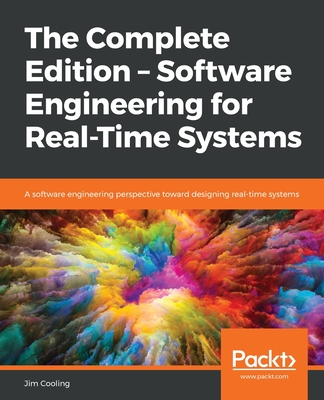Software Testing: Concepts and Operations (Quantitative Software Engineering Series) Hardcover
暫譯: 軟體測試:概念與操作(定量軟體工程系列)精裝版
Ali Mili, Fairouz Tchier
- 出版商: Wiley
- 出版日期: 2015-06-15
- 售價: $5,510
- 貴賓價: 9.5 折 $5,235
- 語言: 英文
- 頁數: 400
- 裝訂: Hardcover
- ISBN: 1118662873
- ISBN-13: 9781118662878
-
相關分類:
Unit Test 單元測試
-
相關翻譯:
軟件測試概念與實踐 (簡中版)
相關主題
商品描述
Explores and identifies the main issues, concepts, principles and evolution of software testing, including software quality engineering and testing concepts, test data generation, test deployment analysis, and software test management
This book examines the principles, concepts, and processes that are fundamental to the software testing function. This book is divided into five broad parts. Part I introduces software testing in the broader context of software engineering and explores the qualities that testing aims to achieve or ascertain, as well as the lifecycle of software testing. Part II covers mathematical foundations of software testing, which include software specification, program correctness and verification, concepts of software dependability, and a software testing taxonomy. Part III discusses test data generation, specifically, functional criteria and structural criteria. Test oracle design, test driver design, and test outcome analysis is covered in Part IV. Finally, Part V surveys managerial aspects of software testing, including software metrics, software testing tools, and software product line testing.
- Presents software testing, not as an isolated technique, but as part of an integrated discipline of software verification and validation
- Proposes program testing and program correctness verification within the same mathematical model, making it possible to deploy the two techniques in concert, by virtue of the law of diminishing returns
- Defines the concept of a software fault, and the related concept of relative correctness, and shows how relative correctness can be used to characterize monotonic fault removal
- Presents the activity of software testing as a goal oriented activity, and explores how the conduct of the test depends on the selected goal
- Covers all phases of the software testing lifecycle, including test data generation, test oracle design, test driver design, and test outcome analysis
商品描述(中文翻譯)
探討並識別軟體測試的主要議題、概念、原則及其演變,包括軟體品質工程與測試概念、測試資料生成、測試部署分析及軟體測試管理
本書檢視了軟體測試功能的基本原則、概念及過程。本書分為五個廣泛的部分。第一部分在軟體工程的更大背景下介紹軟體測試,探討測試旨在達成或確認的品質,以及軟體測試的生命週期。第二部分涵蓋軟體測試的數學基礎,包括軟體規範、程式正確性與驗證、軟體可靠性的概念,以及軟體測試分類法。第三部分討論測試資料生成,特別是功能標準和結構標準。第四部分涵蓋測試預言設計、測試驅動設計及測試結果分析。最後,第五部分調查軟體測試的管理面向,包括軟體度量、軟體測試工具及軟體產品線測試。
- 將軟體測試呈現為一個整合的軟體驗證與驗證學科的一部分,而非孤立的技術
- 在同一數學模型中提出程式測試與程式正確性驗證,使得這兩種技術能夠協同運作,這是基於報酬遞減法則
- 定義軟體錯誤的概念及相關的相對正確性概念,並展示如何利用相對正確性來表徵單調錯誤移除
- 將軟體測試的活動呈現為一個以目標為導向的活動,並探討測試的進行如何依賴於所選擇的目標
- 涵蓋軟體測試生命週期的所有階段,包括測試資料生成、測試預言設計、測試驅動設計及測試結果分析













